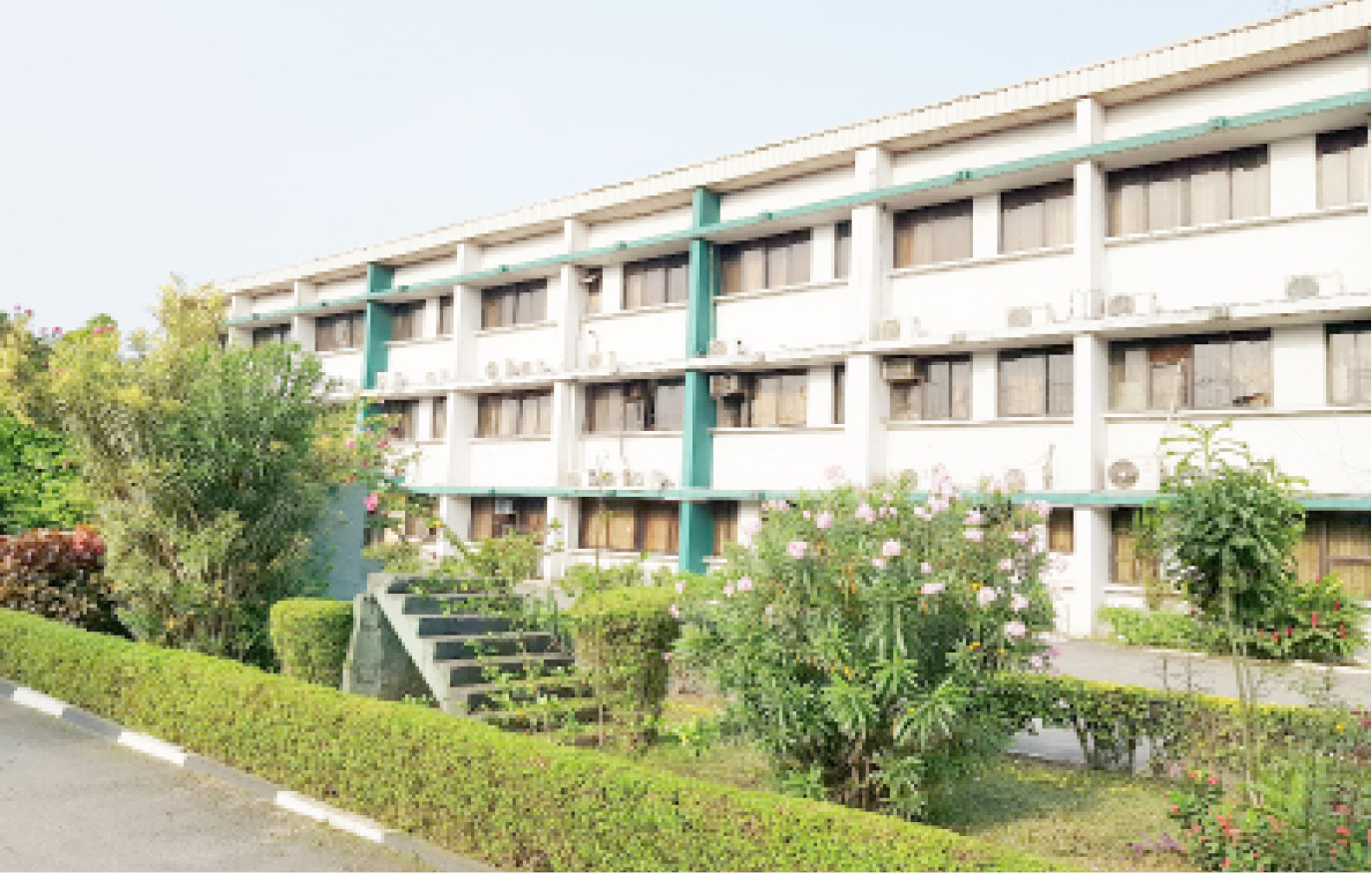The psychiatric hospital in Yaba, Lagos, which was started by the colonial masters in 1907 as a custodial centre for the mentally ill, witnessed transformation in recent years. But its growth is hampered by dilapidated structures, brain drain and poor funding, among other factors, Daily Trust reports.
The day had started like every other one at the Federal Neuro Psychiatric Hospital, Yaba, popularly known as Yaba Left, until a young man ran into the facility and started cutting himself and inscribing #EndSARS on the floor from the blood flowing from his arm.

It was learnt that Alex (not his real name) was one of the protesters against the activities of the notorious Special Anti-Robbery Squad (SARS) and general police brutality in Nigeria and must have been traumatised and depressed.
Speaking on what happened that day, Dr Olugbenga Owoeye, a consultant psychiatrist and director of clinical services in the hospital said, “A patient who joined the EndSARS protest broke down and could not control himself. He ran to the hospital, cut himself and started using his blood to write #EndSARS on the building. He was very weak, almost at the point of death. But we admitted him. We didn’t even know his relatives. Within a week, he recovered.
You can imagine what would have happened to him and other protesters if we did not arrest the situation.”
Once upon a time
Alex is a lucky man. If the same scenario had played out in 1907 when the facility was established, he would have been locked up in a padded cell in a disused Nigeria Railway Building and forced-fed on drugs, such as paraldehyde, mist alba and others, with no form of psychiatric treatment.
The hospital came into existence on October 31, 1907 as Yaba Lunatic Asylum. It was set up as an asylum under the British Colonial rule. The first batch of 48 inmates were admitted in a disused Nigeria Railway Building in Yaba.
The function of the hospital was custodial, that is, keeping the mentally ill away from the society. It was a period when inmates were kept in padded cells and forced-fed drugs prescribed by doctors and administered by asylum attendants.
There were no nurses, no beds and beddings, no uniforms and no form of psychiatric treatment. However, medical doctors from the ministry of health paid occasional visits to give minimal treatment.
Over the years, the hospital has witnessed developmental stages from the asylum it was from 1907 till 1950.
Qualified psychiatrists, nurses and pharmacists arrived at the facility from 1951. There was an outpatient department, as well as the beginning of occupational therapy in the hospital. The name of the institution was changed from asylum to Yaba Mental Hospital.

A new dawn
After two decades, the name was changed to psychiatric hospital as more professionals like nurses and pharmacists started working there. The out-patient department was established and occupational therapy was well developed.
The fourth stage marked the coming of the first female psychiatrist in Nigeria as the medical director of the hospital. It witnessed the beginning of improvement in the infrastructure and treatment in the hospital. Postgraduate training for resident doctors in psychiatry also began during this period.
Today, the hospital boasts of over 500-bed capacity at Yaba and its annex at the Oshodi-Child and Adolescent Mental Health Service Centre. According to Dr Owoeye, it is the largest neuro psychiatric hospital in Nigeria, with the highest number of psychiatrists in the country.
“There are over 21 consultants working here. There is no hospital that can boast of that in Nigeria,” he proudly stated.
He said the hospital had made giant strides in the area of training and contributions to the body of knowledge in mental health, including creating awareness about the illness.
“The hospital is responsible for the training of postgraduate doctors, who become psychiatrists. It has a psychiatric nursing school, school of occupational therapy, the first of its kind in the West Africa sub-region.
“The hospital has recorded a lot of achievements in the area of training. We also have various programmes in place about creating awareness on mental illness via the social media, among others. We also have community engagement and outreach to reach the people in the grassroots,” he said.
His view was supported by the head of administration/secretary to the Management Board, Mr Adeyinka Antwi, who said that apart from educating the citizens on mental health, the management also decided to open up the hospital to the public as a way of disabusing people’s minds about psychiatric illness.
“We opened our services to the public. People use our gym, social centre, football field, among others. We also have a lawn tennis court. We partner with non-governmental organisations to create awareness on mental wellbeing. Our environment is also welcoming – clean and aesthetically good. Our patients are not aggressive,” he said.

Challenges
However, the 113-year-old psychiatric home is suffering from dilapidated structure. This is obvious in most of the buildings, including wards where some of the patients are kept. Some of the structures are old and need overhauling as roofs caving in, cracks in the wall, among other defects, are noticeable.
There is a need for the government to fund mental health by injecting more resources in the area of research, infrastructure and improvement of services.
Mr Antwi, who argued that the funds provided by the government are not sufficient, noted that the management is ‘managing the funds’ to adequately run the facility to meet its mandate of providing comprehensive and qualitative mental health services. The hospital is also supported by spirited individuals, philanthropists and companies.
The facility has a staff strength of 1, 275, but it is battling with shortage of manpower in the critical sector – clinical service – as a good number of staff are in the non-clinical sector or support services. As common with most government institutions, there are many support staff, such as office assistants/secretaries that were busy chatting and sleeping on duty.
Sadly, in the critical area, Nigeria has less than 300 psychiatrists to attend to the mental health needs of 200million people – 30 per cent of this population is said to have one diagnosable mental illness or another. Aptly put, there are less than 300 psychiatrists to attend to about 600,000 Nigerians battling mental illness.
Worse still, many psychiatrists, psychologists and nurses are leaving the country in search of greener pastures.
“The number of psychiatrics in Nigeria today is grossly inadequate. There is a need to employ and train more doctors in this field. Unfortunately, the few ones we trained are leaving the country in droves, so we need to do something along this line.

“Psychiatrists, including nurses, psychologists and social workers are leaving the country. The numbers are not enough, yet the few are leaving. The environment is not conducive for them. This is affecting mental health services in Nigeria,” Dr Owoeye lamented.
It is easier to understand Owoeye’s plight with the volume of work he has to attend to on a daily basis. During the visit of our correspondent to his office on a Monday, it was discovered that some patients were already waiting to see him as early as 7:30am. After attending to some of them, he had to excuse himself at past 12:00noon to attend a class/seminar after the participants had sent representatives on more than two occasions to call him.
His patients waited patiently, except two that were already showing signs of restlessness and frustration before he returned a few minutes past 4:00pm.
Without any break, he started attending to patients again until the last woman and her daughter left, almost two hours later. Then, he sat with our correspondent for a chat, showing signs of fatigue and possibly, hunger.
The previous week, he couldn’t attend to our correspondent because he was supervising postgraduate students who were writing examinations.
This is not limited to Dr Owoeye, as the medical director of the hospital, Dr Oluwayemi Ogun, who is the pioneer psychiatrist of the Child and Adolescent Mental Health Services Centre, was also fully engaged on the occasions our correspondent visited. She had to refer our correspondent to Dr Owoeye.
There is an urgent need to properly staff the clinical sector of the hospital as Daily Trust on Sunday learnt that most patients are always unwilling to see other doctors (apart from those who started their treatment) for fear that their drugs might be changed, a situation that often leads to crisis or relapse.
During one of the visits to the female ward, a patient, putting on a white gown, was sighted sitting at the staircase, weeping profusely and echoing, “God, please help me.” After a few minutes, one of the nurses approached her, “Faith (not her real name), sorry. Go to your bed,” she said while leading her to the room. Her clean gown was stained at the back, obviously by the dust on the staircases where she sat.
It was observed that most of the patients were neatly dressed in their uniforms. It was the same at the male ward, where the inmates were putting on blue trousers and tops. Only few had dirty uniforms on, while some also put on some form of clothing around their neck or on top their uniforms, maybe to fight against cold, though the weather stated otherwise.
As our correspondent prepared to leave after interacting with some of the nurses who lamented some of the challenges of the hospital, a patient approached, standing straight while performing the hand salutes by bringing her right hand to her head and raising her legs, same way law enforcement agents would have done in preparation for a march-past.
“She is greeting you,” one of the nurses jokingly said as she walked past her.
Confused, our correspondent was rooted to the spot while noticing that the patient had a big scar on her left leg. “This must be an aggressive one,” he thought.
Rescue came his way as the nurse that walked past the patient gave him a sign to also walk pass her without acknowledging the greeting.
“Elizabeth, let him pass,” another nurse echoed from the background.
It was relieving to go without any drama, but the nurses who must have noticed the fear couldn’t help but smile as our correspondent left the ward.
Indeed, there is a thin line between sanity and insanity.

 Join Daily Trust WhatsApp Community For Quick Access To News and Happenings Around You.
Join Daily Trust WhatsApp Community For Quick Access To News and Happenings Around You.


